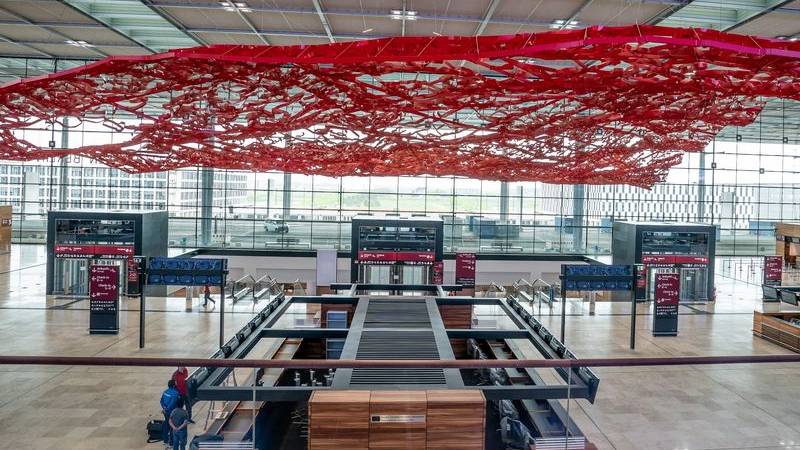Berlin’s Tegel Airport could soon be off the grid. Berlin, Brandenburg and the federal government plan to discuss this on Wednesday, the Federal Ministry of Transport announced on Friday.
Airport chief Engelbert Lütke Daldrup warned against wasting any more time in view of the costs: Berlin counts fewer than 2000 passengers a day. “In this respect, now is the time to save money.” However, two things are still missing in order to close Tegel: the approval of the aviation authority. And furniture.
In order to give up Tegel, the government planes would also have to move to the BER. However, the future government terminal will still be set up there, as Lütke Daldrup explained. “In the last few weeks, I believe, the Federal Government has made a great effort to speed up the completion process.”
According to the newspaper “B.Z.”, however, it may take until mid-July for the new government terminal to be operational. And the federal government would not agree to take Tegel off the grid beforehand. The Department for Transport declined to comment on Friday.
The passenger terminals on BER are scheduled to go into operation in October, after which Tegel will have to close anyway. Lütke Daldrup wanted to bring the farewell forward to the beginning of May, now he is preparing the airlines for June. “We have communicated with our customers the date of 2 June.” It is also necessary for the aviation authority to abolish the operational obligation. The application was submitted just over two weeks ago.
Even without the Corona crisis, the airport company has big money problems. Despite the passenger record, it also made a loss last year. The decrease amounted to just under EUR 96 million, which was around EUR 19 million higher than in the previous year.
The current business with the airports Tegel and Schönefeld returned profits; earnings before interest, taxes, depreciation and amortization are €108.4 million, according to the company, Lütke Daldrup said after a supervisory board meeting. The red numbers at the bottom would have been the construction site of the new capital airport BER and old debts.
The airport is due to open on 31 October, nine years late, following numerous tree failures and planning errors. “The builders were able to report today: We have finished,” said Lütke Daldrup. In the meantime, the trial operation is in progress.
Berlin’s finance senator Matthias Kollatz (SPD) had speculated on Thursday that the BER would be launched four weeks earlier. Lütke Daldrup reacted cautiously. It is too early to make such a statement. It is always good to have buffers.
The airport company is owned by the states of Berlin, Brandenburg and the federal government. Despite the deficit, it is not at risk of insolvency, Lütke Daldrup contradicted a recent study by business economists. This “milk girl’s bill” is based on false assumptions.
What is certain, however, is that this year alone, because of the Corona crisis, the state-owned company needs a financial injection of up to 300 million euros – about two-thirds of the usual annual turnover. Even before Corona, it was clear that the company had a financial gap of almost 800 million euros from 2021 to 2024 – “essentially follow-up costs for the BER,” as the managing director said.
However, Lütke Daldrup assured that after the OPENING of ber, the revenue situation would change completely. Instead of the current EUR 12, eur 18 per passenger will be earned, and by 2023 at the latest there will be as many passengers as before the crisis; that would be about 100 000 per day. From 2025, the airport company will make a profit and will be able to pay its debts, stressed Lükte Daldrup.
The future Chief Financial Officer Aletta von Massenbach will also ensure this. It will be available from Frankfurt airport operator Fraport for BER in September. For the time being, it is a matter of keeping the balance sheet a long way off. Short-time working for a large part of 2200 employees in the company has been extended until the end of the year.



